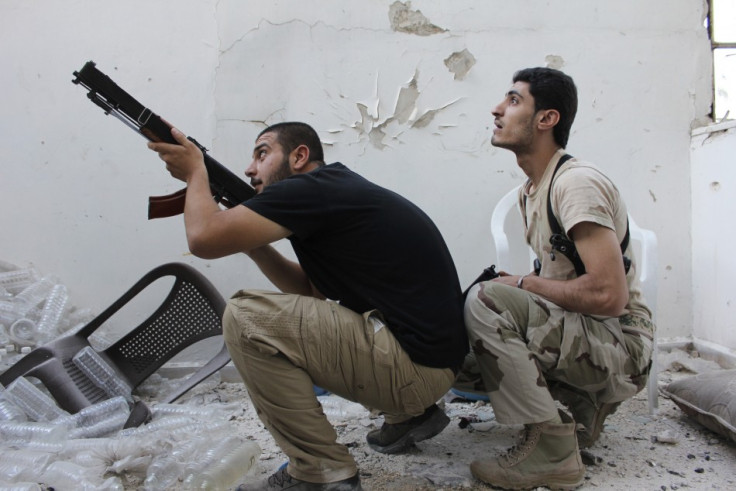Syria Civil War: CIA 'Sending Light Weapons to Anti-Bashar al-Assad Rebels '
Lethal aid shipments from US to Gen Salim Idriss believed to have got under way

The CIA has started to send arms to rebels battling forces loyal to president Bashar al-Assad in Syria, according to reports.
Deliveries of light weapons and other munitions began two weeks ago along with separate shipments of non-lethal aid by the State Department, the Washington Post reported.
The non-lethal supplies include vehicles, communications equipment and advanced combat medical kits.
US secretary of state John Kerry vowed in April that non-lethal aid would start flowing "in a matter of weeks". But hesitation by the Obama administration on whether to supply the Syrian rebels delayed the process.
In June, the White House hinted that lethal aid would be provided.
Some lawmakers including Republican Senator John McCain pulled their support from Obama's resolution on Syria until the administration committed itself to providing the rebels with more assistance.
Sen Bob Corker, Republican, said he felt embarrassed when he met Syrian rebels along the Turkish border.
"It was humiliating," he said. "The president had announced that we would be providing lethal aid, and not a drop of it had begun. They were very short on ammunition, and the weapons had not begun to flow."
According to news reports, which have not been confirmed by Washington, the weapons will be handed over to Gen Salim Idriss, commander of the Supreme Military Council, a faction of the opposition to Assad regime.
The CIA has declined to comment.
In August, French newspaper Le Figaro reported that a Western-backed rebel military operation to topple Assad under the supervision of Jordanian, Israeli and American forces had already begun.
The first troops trained by the CIA and Amman officials were deployed in mid-August in the Deraa region, according to the report.
A 300-strong group of Free Syrian Army (FSA) fighters crossed the border into Syria on 17 August, and were joined by another group two days later.
Le Figaro believed that the pressure mounted by the specially trained FSA fighters prompted the gas attack on Ghouta, which was blamed on the Assad regime. The Syrian president had claimed that the government would never use those weapons "except for external aggression".
© Copyright IBTimes 2024. All rights reserved.






